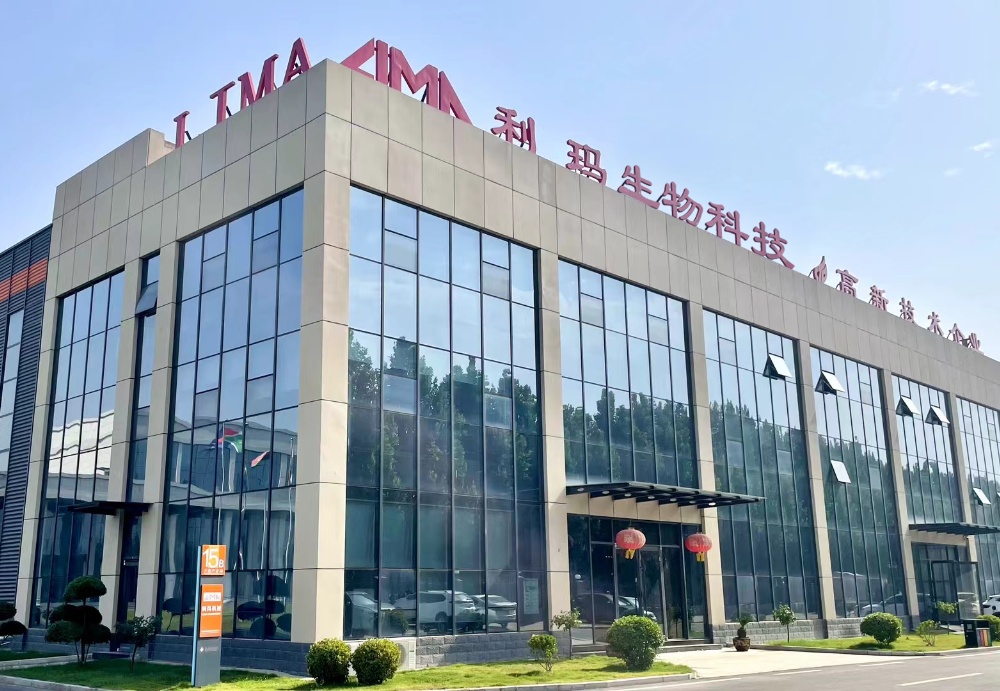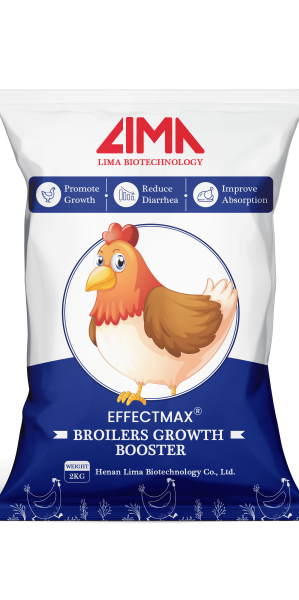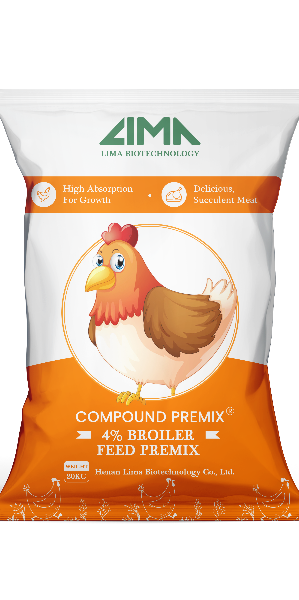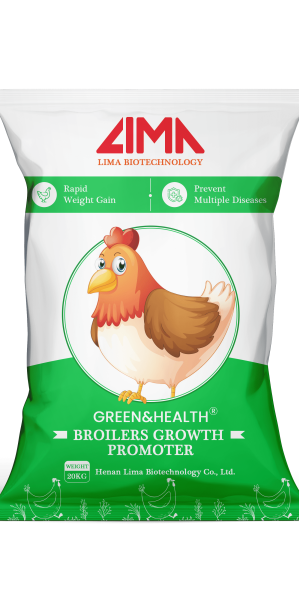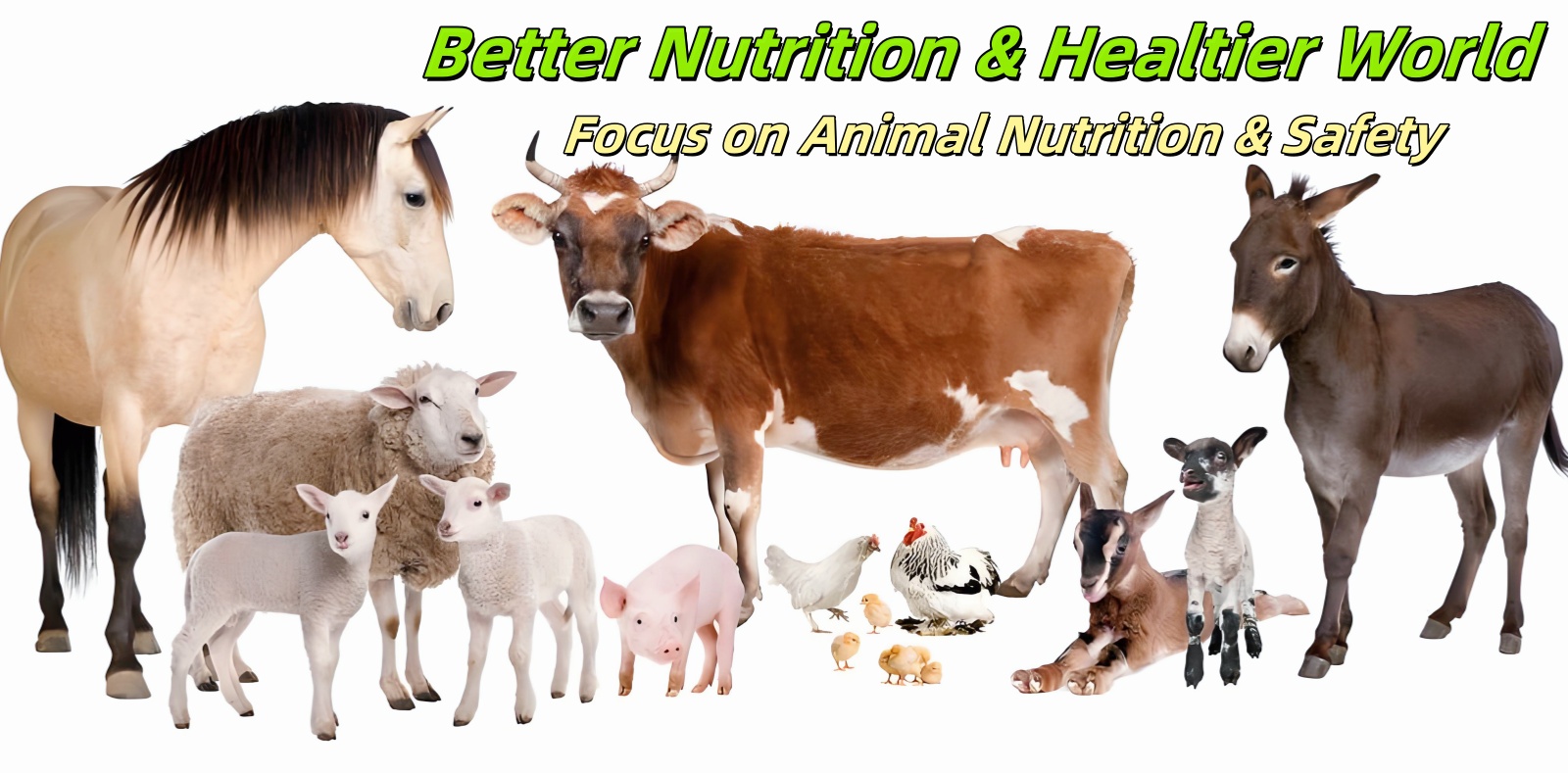For Ghanaian farmers, increasing broiler growth rates and quickly bringing them to market under local climatic conditions is a key profitability issue. In addition to continuously optimizing the broiler environment, Lima Biotech's broiler growth promoters help poultry farmers achieve rapid broiler growth.
Why Raise Broilers in Ghana?
In Ghana, poultry, as a cost-effective source of high-quality animal protein, is crucial for ensuring national food and nutritional security. However, the local broiler market faces a severe supply-demand imbalance—of the 400,000 tons of poultry meat demanded annually, local production can only meet 50,000 to 57,800 tons, and a significant amount of frozen chicken meat is imported. Ghana's broiler market is booming, offering significant market potential.
Step 1: Choose High-quality Broiler Chicken Breed
Chick quality directly impacts subsequent growth. Finding a broiler breed suitable for Ghana requires meeting three key criteria.
Fast Growth: Reaching a market weight of 2.5-3 kg in a short period of time is essential to meet the Ghanaian market's demand for short-term market release. When selecting on-site, we recommend choosing chicks with bright eyes, clean down, clear calls, and vigorous struggles. Avoid chicks with clinging feathers or lethargy.
High Feed Conversion Rate: This means that the feed consumed yields significant weight gain, significantly reducing feed costs in the short term.
Adaptability to the Ghanaian poultry farming environment: Strong tolerance to high temperatures and humidity, and resistance to common poultry diseases in Ghana (such as Newcastle disease and coccidiosis). You can consult successful local farmers, for example, asking which hatchery they source their chicks from and what their broiler survival rates are.
Step 2: Optimize Broilers Feeding
Feed costs account for 60%-70% of the total cost of broiler farming. An inappropriate feed formula not only wastes money but also leads to slowed growth. Given Ghana's feed resources and climate, a well-balanced feed mix is key to promoting growth.
1. Nutritional Requirements at Different Stages
Broiler growth is divided into three stages, and the feed formula for each requires precise adjustments:
Brooding Period (1-2 weeks): A high-protein (22%-24%), high-energy feed is required to help chicks develop organs and bones.
Growing Period (3-4 weeks): Protein content can be slightly reduced, while energy levels remain stable, with a focus on promoting muscle growth.
Fattening Period (5 weeks - Market): Protein content is further reduced to 18%-20%, and energy levels are appropriately increased (e.g., by increasing the proportion of corn) to accelerate fat deposition.
2. Suitable Feed Ingredient in Ghana
If you want to utilize readily available local ingredients in Ghana to reduce feed costs, here are some recommendations:
Energy Source: Primarily corn (50%-60% of the feed). Corn is a high-yield, stable-priced energy source in Ghana, making it the most economical energy source.
Protein Source: Soybean meal is preferred (20%-25%). If soybean meal is too expensive, local peanut cake or sunflower seed cake can be used (replace no more than 10% to avoid digestion issues).
Essential Additives: Vitamins (such as vitamin E and vitamin C to enhance heat resistance), minerals (calcium and phosphorus to promote bone development), and enzymes (such as phytase).
3. Key Points for Feeding and Watering Practices
Feed in small amounts and frequently: Feed 4-5 times daily, ensuring that each portion is consumed within 30 minutes to prevent mold in high-temperature and high-humidity environments.
Ensure clean drinking water: Use shaded water tanks, avoid water temperatures that are too high (above 25°C will reduce broilers' willingness to drink), change the water 1-2 times daily, and clean drinkers regularly to prevent bacterial growth.
Step 3: Give Your Broilers With Growth Prompter
Under Ghana's climatic conditions, it's difficult to fully realize the growth potential of broiler chickens with feed alone. Organic growth promoters can specifically address issues such as heat stress, poor digestion and absorption, and weak disease resistance. They also eliminate the risk of drug residues and meet market demand for safe poultry.
1. Why Choose Organic Growth Boosters?
Risk avoidance: Synthetic growth promoters may contain drug residues, affecting poultry quality and even violating Ghana's food safety regulations. Organic growth promoters, on the other hand, are primarily based on natural ingredients (such as bioactive peptides, plant polysaccharides, and complex enzymes) and are safe and residue-free.
Targeted solutions to Ghanaian farming pain points: They can enhance broiler chickens' tolerance to heat stress, improve the intestinal environment, and reduce diarrhea and enteritis caused by high temperatures and humidity.
2. Positive Effects of Lima's Broiler Growth Promoter
Many farmers in Ghana have demonstrated significant improvements in broiler growth after using organic growth promoters:
3-7 days: Feed absorption efficiency improves, diarrhea decreases, and feces become more formed, indicating enhanced intestinal digestion function;
Around 14 days: Chicks' toe scales become more lustrous, their feathers become smoother and glossier, and their survival rate increases by 15%-20% compared to untreated groups;
Fattening period: The intestinal environment stabilizes, nutrient absorption becomes more efficient, and broilers reach market weight an average of 5-7 days earlier, with firmer meat;
Disease and stress resistance: It reduces the incidence of Newcastle disease and E. coli, reduces antibiotic use, and reduces stress reactions in broilers during feed changes and house temperature adjustments.
3. How to Use Broiler Growth Promoters
Precise Dosage: Add 2 kg of organic growth promoter to every 1000 kg of feed and mix thoroughly. No additional dosage is required.
Convenient Local Procurement: Choose a brand with a warehouse in Ghana (Lima Biotech broiler growth promoter warehouse is located in the Unn Building behind the Tema Asaman Timber Market). Same-day orders can arrive in as little as one day, eliminating shipping delays that could affect feed formulation.
Step4: Optimizing Poultry House Environment
Broilers are more sensitive to their environment than one might imagine. These factors can directly inhibit their growth. Given Ghana's climate, chicken house environmental control must focus on three key aspects: temperature, humidity, and hygiene.
1. Broiler Temperature Control
Chickens are cold-blooded and unable to regulate their body temperature. Floor temperatures must be maintained between 28-30°C. Use infrared heating lamps or electric heating plates to ensure even gathering of chicks, preventing them from clumping or moving away from heat sources. To prevent heat stress in Ghanaian summers, fans and water curtains can be installed as core cooling equipment in the chicken house.
2. Humidity Management in Chicken Houses
Ghana has high humidity year-round. Excessive humidity can cause feed mold and accelerate bacterial growth, so it needs to be controlled in stages:
If humidity is too low (below 60%), sprinkle water on the ground (avoid directly on the chicks). If humidity is too high, reduce humidity by increasing ventilation (opening side windows and roof vents), replacing dry bedding (using sawdust instead of straw, which absorbs moisture and is prone to mold), and promptly removing manure.
3. Frequent Ventilation and Cleaning
Control Ammonia Concentration: Excessive ammonia concentration in chicken houses can damage the respiratory tract of broiler chickens and affect their growth. It is best to ensure that no pungent odors are noticeable when entering the chicken house. Otherwise, ammonia can be reduced by cleaning feces daily, disinfecting the floor with quicklime weekly (to avoid direct contact with broilers), and installing roof ventilators.
Regular disinfection: Disinfect the inside and outside of the chicken house once a week, focusing on cleaning feed troughs and waterers to prevent the introduction of external pathogens.
Avoid cross-contamination: Prohibit outsiders from entering the chicken house. Farmers must change into work clothes and shoe covers and wash and disinfect their hands before entering to prevent the spread of pathogens.
Conclusion
In Ghanaian broiler farming, the key to promoting growth isn't taking shortcuts, but rather ensuring that broilers reach their maximum growth potential through scientific management in a suitable environment.
For Ghanaian farmers, improving broiler growth efficiency not only increases personal income but also contributes to alleviating local dependence on poultry imports and ensuring national food security. By implementing these strategies now, we can gradually achieve the goal of "faster market release and higher profits."
- About Lima Biotech
- Careers-Lima Biotech
- Code of Conduct-Lima Biotech
- Conditions of Sale-Lima Biotech
- Contact-Lima Biotech
- Cookies Policy-Lima Biotech
- Find Agent-Lima Biotech
- Global Warehouses
- Investor Relations-Lima Biotech
- Legal Information-Lima Biotech
- Privacy Policy-Lima Biotech
- Success-Lima Biotech
- Sustainability-Lima Biotech
- World Class Manufacturing-Lima Biotech













